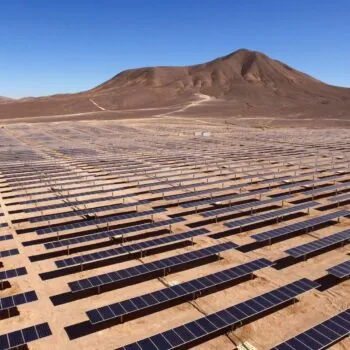Countries emerged from intense negotiations in Durban this morning with a commitment to strike a legally binding global climate deal in 2015. Progress was led by a new “Green Coalition” between the European Union, Small Island States, Least Developed Countries and progressive Latin Americans which overcame objections from those blocking a roadmap to a new binding deal. The prospect of a comprehensive legally binding framework, coupled with the positive energy and momentum developed in the talks, opens up a credible pathway to a 2015 deal which could keep global temperatures below 2°C.
Nick Mabey, CEO of E3G said:
"Durban could have definitively shut the door on a climate secure future. Many large countries came here looking to continue a system of voluntary emissions reductions. This would have locked-in a 4 degree plus world. The efforts of the new “Green Coalition” of countries have prevented this disastrous outcome.”
However, the near collapse of talks in the final hours shows that there is still a need for real shifts in the positions of the of major countries such as the US, Japan, India and China if strong, binding emissions cuts are to be agreed under a new framework in 2015.
"Despite the euro-zone crisis, the EU, alongside progressive developing and vulnerable countries, brokered a deal in Durban. Durban is not a final victory but it is a real opportunity. We now have to work intensively towards the 2015 deadline to mobilise the political will needed to permanently reduce the risk of catastrophic climate change to safe levels.”
Mabey continued.
This deal also puts to rest the argument that climate talks should move to the G20 or other limited group of large countries. The problems at Durban and other climate negotiations have mainly been due to the political differences between major powers, not the structure of the UN talks or the number of countries present.
Nick Mabey concluded,
"The increasingly fashionable idea of junking the UN climate process and inventing a new system from scratch was always fantasy diplomacy. The complexity and scale of the UN process often does make talks frustratingly slow, and some practical reforms are needed. However, Durban nearly failed because of conflicts between the major powers. It was the smaller and poorer countries who provided the political pressure to secure a real deal”
Editor’s Notes:
1. E3G is an independent, non-profit international organisation operating in the public interest to accelerate the global transition to sustainable development. E3G builds cross-sectoral coalitions to achieve carefully defined outcomes, chosen for their capacity to leverage change. E3G works closely with like-minded partners in government, politics, business, civil society, science, the media, public interest foundations and elsewhere.


